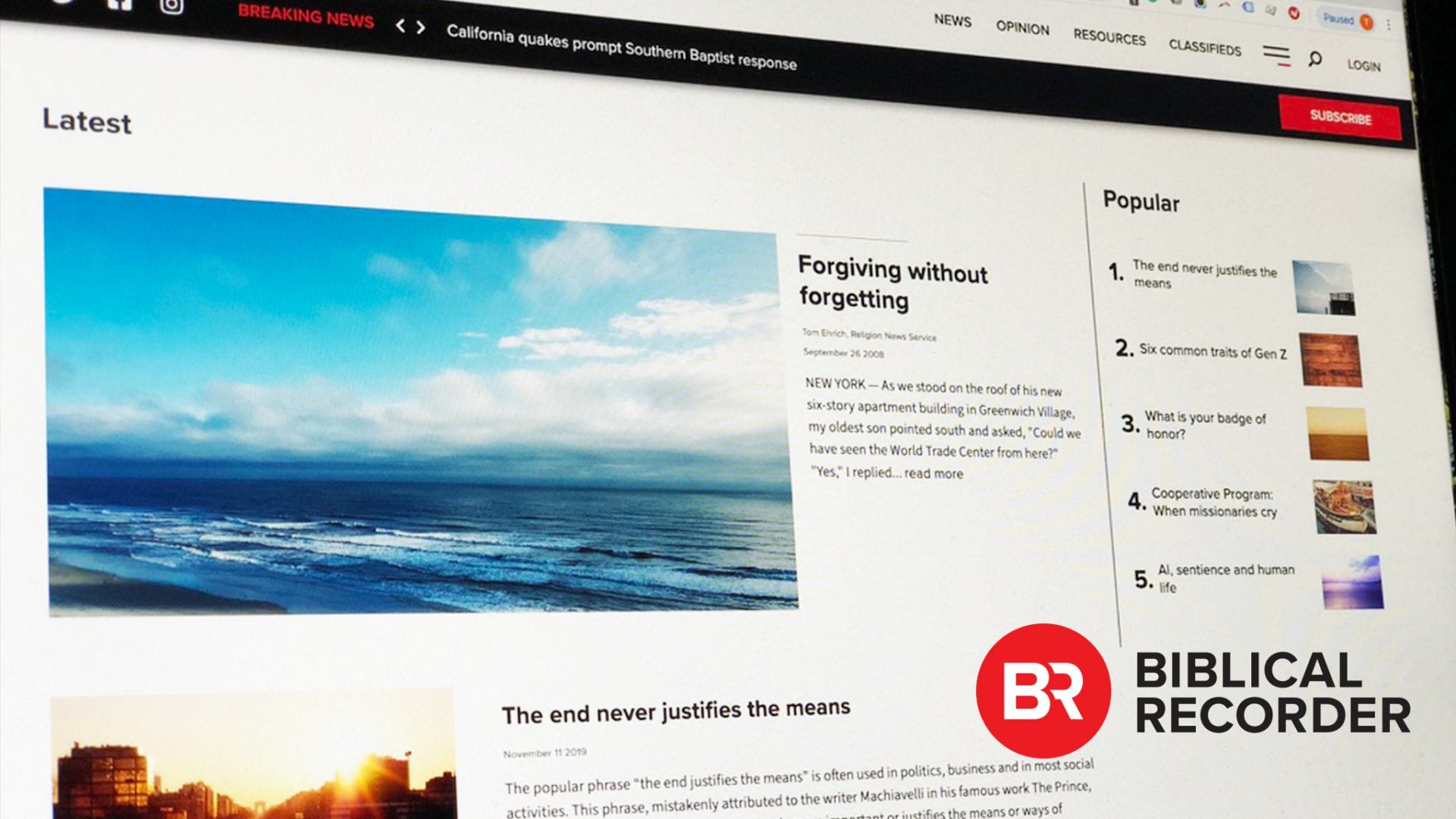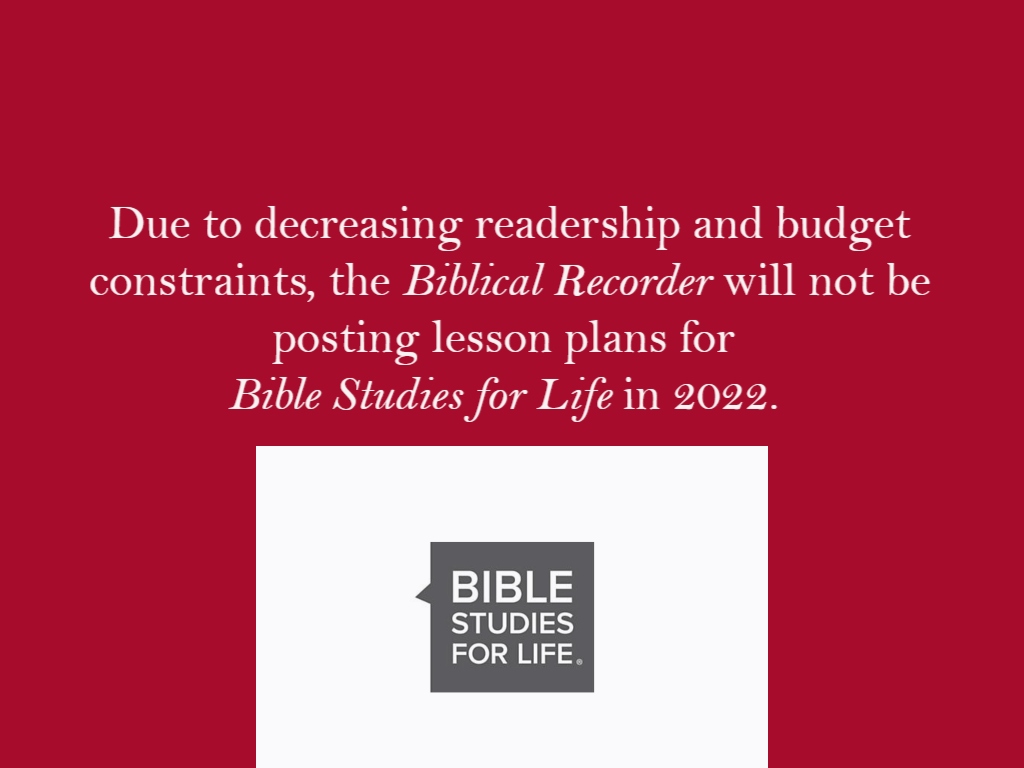Log into your account
We have changed software providers for our subscription database. Old login credentials will no longer work. Please click the "Register" link below to create a new account. If you do not know your new account number you can contact [email protected]
Sunday School Lessons
Explore the Bible
Explore the Bible Lesson for December 26: Sought
Grayson Furlough, Campus Pastor, Point Church, Garner
December 22 2021
Explore the Bible Lesson for December 19th: Judges
Grayson Furlough, Campus Pastor, Point Church, Garner
December 13 2021
Explore the Bible Lesson for December 12: Saves
Grayson Furlough, Campus Pastor, Point Church, Garner
December 07 2021
Bible Studies For Life
Bible Studies for Life Lesson for December 26: The King Who Reigns Forever
Lindsey Harris, Asheville, NC
December 22 2021
Bible Studies for Life Lesson for December 19: The Savior Who Came
Lindsey Harris, Asheville, NC
December 13 2021
Bible Studies for Life Lesson for December 12: The Light in the Darkness
Lindsey Harris, Asheville, NC
December 07 2021

Sign up for our Weekly Newsletter!
The latest news delivered to your inbox every Wednesday morning.





